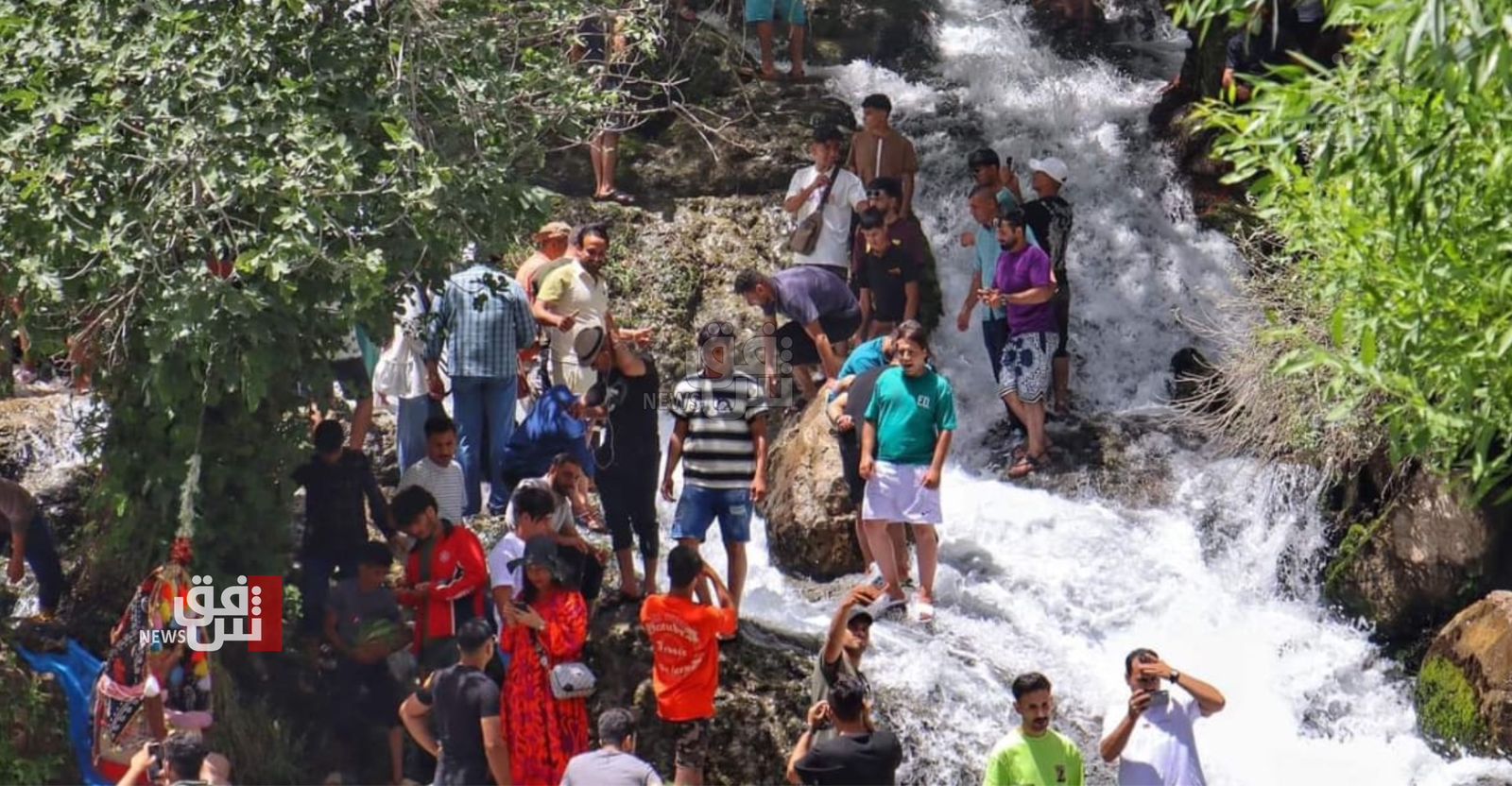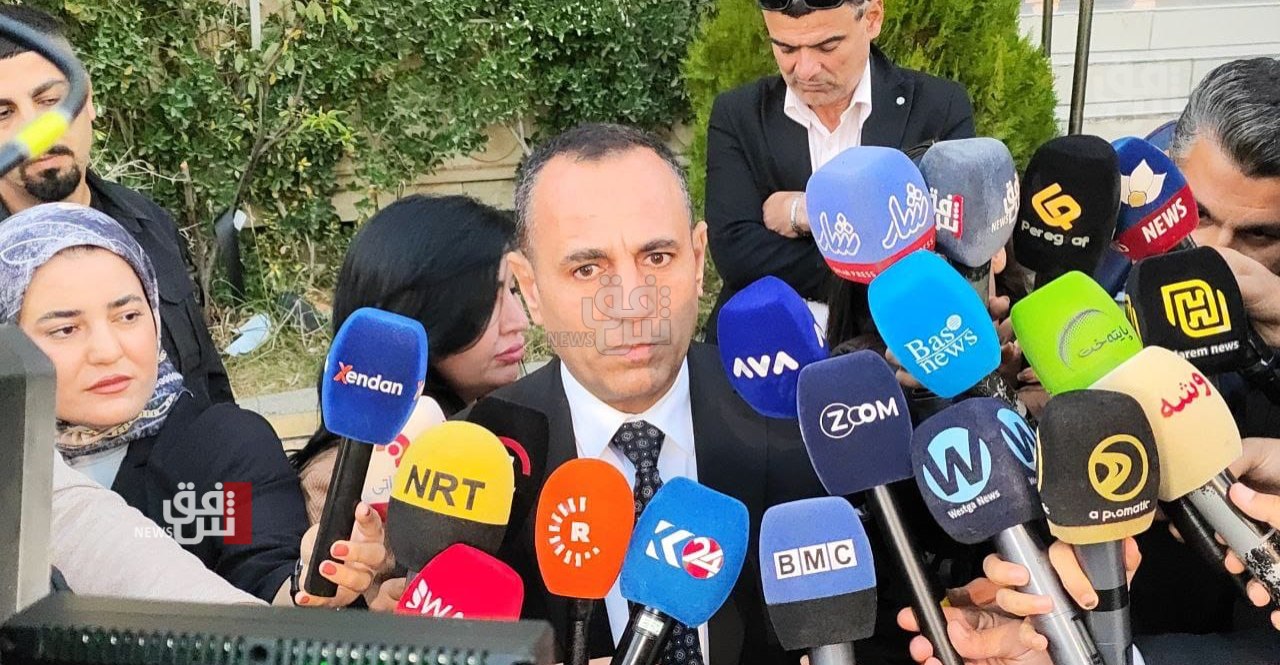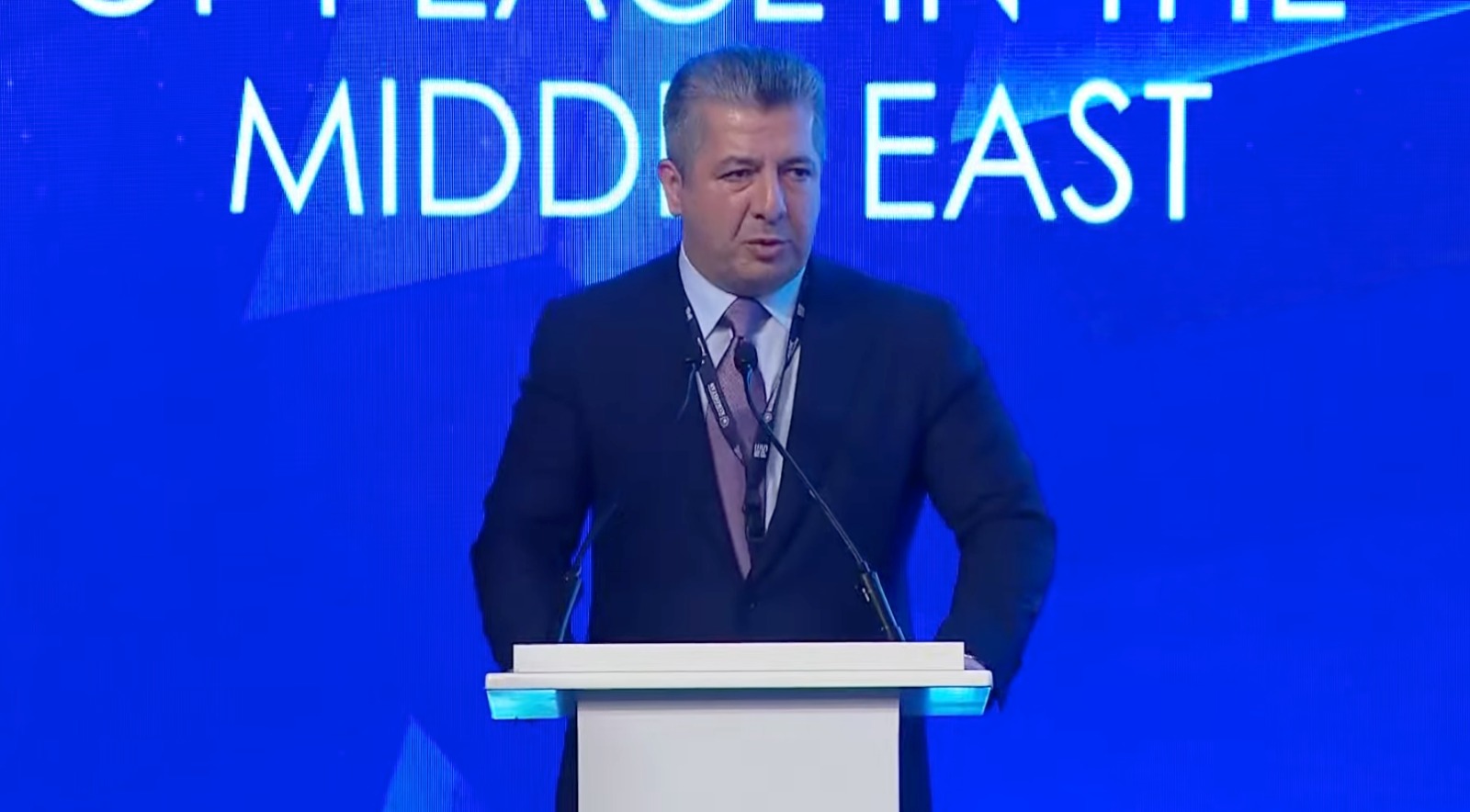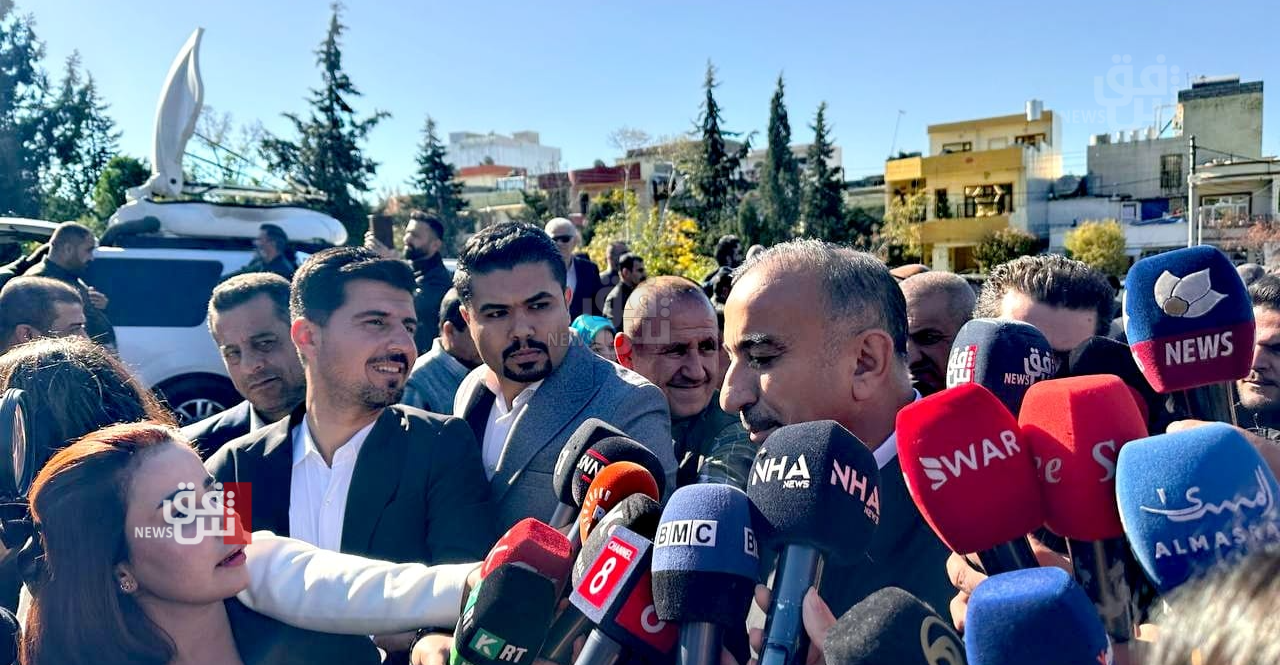Kurdistan's vibrant summer: a hub for tourists and eco-friendly initiatives

Shafaq News/Each summer, the Kurdistan Region of Iraq (KRI) becomes a premier touristdestination, drawing thousands of visitors from near and far. This influxbolsters the regional economy, driven by the Region's stunning landscapes, mildclimate, and rich cultural heritage, making it one of the most popular touristspots in the country.
Kurdistan'sNatural Wonders
YoussefAhmed, a local tour guide, highlighted the unique appeal of the KRI, which is knownfor its diverse landscape that ranges from towering mountains to verdantvalleys. He told Shafaq News Agency that the Azmar and Soran Mountains areamong the top attractions, offering hiking and mountain biking opportunities. "Riversand waterfalls, such as the Ahmad Awa, also provide scenic spots for picnickingand relaxation."
Moreover,Ahmed emphasized that Kurdistan's appeal extends beyond its natural beauty."Tourism here isn't just about landscapes," he said, pointing to theRegion's rich cultural and historical diversity. Visitors can explorearchaeological landmarks, including Sherwana Castle in the south ofAl-Sulaymaniyah and the ancient Erbil Citadel, some of the oldest inhabitedcastles globally. In major cities like Al-Sulaymaniyah and Duhok, variouscultural events and summer festivals showcase traditional arts and music.
The Regionalso offers a wide array of recreational activities, including camping,fishing, and nature walks. According to Ahmed, visitors can experience "acomplete tourism package," with local cafes and restaurants servingauthentic regional cuisine, further enhancing the experience.
Eco-Tourism,Conservation Efforts
Kurdistan'scommitment to environmental conservation is becoming increasingly evident asthe Region enhances its eco-tourism efforts. Environmental activist AnwarMohammed states, "Kurdistan is renowned for its breathtaking naturallandscapes, including mountains, rivers, and waterfalls." He noted to ouragency that rising environmental awareness among residents and tourists hasspurred intensified efforts to preserve these resources and promote sustainabletourism.
Many touristareas in Al-Sulaymaniyah have implemented strict waste management policies,encouraging visitors to use designated trash bins and recycle. Mohammedhighlighted, "These initiatives have helped reduce pollution and maintainthe cleanliness of natural areas." In response to growing tourisminterest, several nature reserves have been established across Kurdistan toprotect endangered species and provide sustainable environments for exploration.For instance, the Chavi Land tourist complex in Al-Sulaymaniyah featuresnumerous reserves for visitors to enjoy.
In addition,some tourism projects in Kurdistan, particularly in Al-Sulaymaniyah, areadopting solar energy as an alternative to fossil fuels. Mohammed emphasizedthat "this approach enhances environmental protection and reduces carbonemissions."
Tourism inKurdistan has also become a platform for environmental education. "Quickawareness campaigns are organized for tourists by local tourism teams upon arrival,"Mohammed explained. These campaigns include distributing posters and brochureson environmental sustainability and providing ways to minimize their ecologicalfootprint during their visit.
Mohammedconcluded that tourism is more than just an economic activity. "It can bean effective environmental improvement and preservation tool throughsustainable practices…The Region's approach to balancing tourism developmentwith environmental protection sets a model for other areas, potentiallyinspiring similar initiatives across Iraq."
Economic AndCultural Impact
Summertourism in Kurdistan has emerged as both a key economic driver and a platformfor cultural exchange. Intisar Saleh, an activist, highlighted to Shafaq NewsAgency that "summer tourism in KRI is not only about relaxation andenjoying the natural beauty but also plays a crucial role in supporting thelocal economy." She noted that tourist hotspots like Shaqlawa, Erbil,Al-Sulaymaniyah, and Duhok are rich with resorts and hotels that offerdistinctive experiences. "Numerous cultural and entertainment eventsduring the summer enhance the Region's appeal to tourists," Saleh added.
Salehestimated that "summer tourism generates millions of dollars annually,significantly bolstering the local economy." This revenue stream includesincome from hotel stays, shopping, dining at local restaurants, and organizedtours. Furthermore, she pointed out, "Summer tourism promotes culturalunderstanding between visitors and locals, as tourists experience Kurdistan'sheritage through handicrafts, traditional cuisine, and festivals."
"All ofthis boosts the Region's image as a safe and stable destination."
Kak Kamran,a hotel worker in Al-Sulaymaniyah, explained to Shafaq News Agency,"Summer tourism creates both seasonal and permanent job opportunities forlocals." These roles span various sectors, including hospitality,services, and retail. "It has become a primary alternative to governmentjobs for many young people and families," he said, noting that it alsohelps address the employment gap caused by the ongoing salary crisis.
The rise intourist numbers has led to increased investments in tourism infrastructure."Local and foreign investments are notably growing, focusing on newresorts, road improvements, and the development of tourist attractions,"Kamran noted.
InvestmentAnd Expansion Plans
In aninterview with Shafaq News Agency, Ibrahim Abdul-Majid, spokesperson for theKRI's Tourism Board, confirmed, "The Region's Ninth Cabinet hasprioritized the tourism sector due to its positive impact on market activityand job creation for local citizens." He added, "Investment intourism has surpassed $5 billion over the past four years, making it theleading sector for investment."
In thiscontext, The KRI's Tourism Board has laid out comprehensive plans to developits tourism sector further, focusing on expanding recreational sites andimproving visitor services.
According tothe Board's spokesperson, the Region currently boasts over 3,100 tourist,archaeological, and recreational sites, including heritage sites, hotels,restaurants, and entertainment centers.
Abdul-Majid addedthat the Board is committed to increasing these numbers by providing moreinvestment opportunities in the sector. "We have continuous plans toenhance services," he said, stressing that these efforts are aimed atattracting more tourists, a trend already reflected in the annual rise invisitor numbers.
As part ofits strategy, the Board also introduces a precise accounting system to monitorthe flow of tourists and visitors. "This system will classify tourists bygender, age group, and other demographic details," Abdul-Majid explained,underscoring the importance of such data in tailoring future tourisminitiatives.






